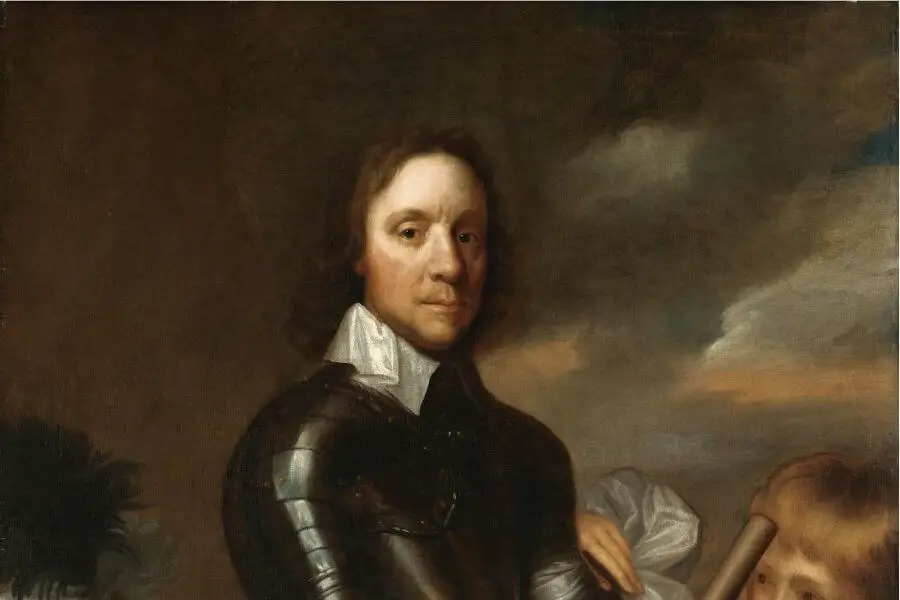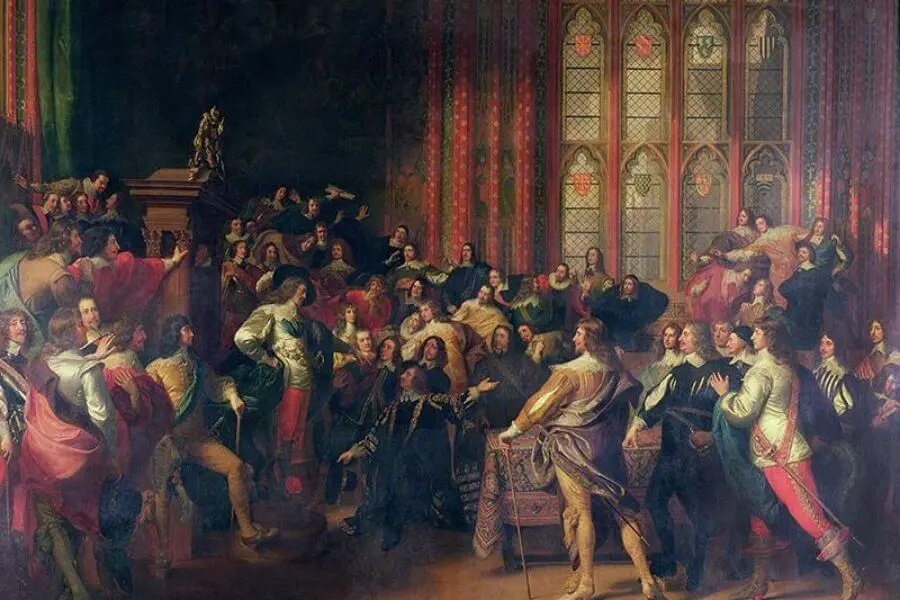After someone’s death, we usually pray for their eternal peace and feel sorry for what they might be going through. However, history and its people seem to be inconsiderate of this feeling.
It was a case that questioned humanity at many levels. For many, it was a strange saga that continued even after history’s most controversial figure, Oliver Cromwell’s death. Speculations arise when his head got separated from his body and was buried under an unspecified location many years later.
Let;s know what is this saga behind the head of Oliver Cromwell.
Background

He was born at Huntingdon (Eastern England), on 25th April 1599. He was the only son of Robert Cromwell and Elizabeth Steward. Father being a member of Queen Elizabeth’s one of the parliaments, as a landlord and justice of the peace, made him a known figure at that time. It is believed that his education taught him the idea of Protestantism and helped him to realize the powerful sense of God.
Puritan By Heart

Oliver Cromwell was an English military general. Being a puritan, he opposed King Charles I. To save the people of England, he led the parliament armed forces against King Charles I during the English Civil War I. He played a significant role in the ultimate doom of King Charles I.
Crushing The Monarchy

In 1649, he became the leader of England by leading the New Model Army. The New Model Army included the opponents of King Charles I and who also thought that he should change his overpowering policies or should leave.
Crushing the royal products and not agreeing with the other lawmakers, he became the Lord Protector. It became quite clear that his free-spirited decisions were the cause of his budding enemies.
However, he allowed various religious liberties to Protestants but issued discipline for the moral law, which included not celebrating Christmas, bear-baiting, forbade people from drinking.
Faced A battle Of Mental Health
The 17th-century leader was known to be suffering from depression. Formerly, from the late 1620s, he suffered from “melancholia,” which later was called depression.
It provided a more rounded interpretation at a deeper level. Reports do confirm that Cromwell wrote the letter describing his incipient budding dark thoughts when his anxiety was at an upsurge level of dissatisfaction. The mental illness of authoritarian leader Cromwell played a central part in his not so accidental death.
An excerpt from the letter:
“Instead of pittyinge you, I can little bewayle my selfe, haue I one friend in our societye to whome I can vnbowell (unburden) my selfe…”
For the first time, the letter of the dead got publicized as part of a deal in Cromwell Museum, Huntingdon.
Inevitable Death
3rd September 1658 was marked as the death of Oliver Cromwell. According to the doctors, his death was natural due to the forming up of Malaria and existing kidney stone disease. However, many believed that his death was quickened by the demise of his daughter a month earlier.
He appointed his son, Richard, as his successor. Unlike Oliver, he was not able to maintain peace between parliament and the army. Therefore, renounced power in May. Charles II became the king, hence, called a restoration period. (Monarchy got restored).
Funeral Procession
The funeral procession of Cromwell was a grand affair; people were visibly on the streets in London. Despite refusing the crown several times, he got dressed in silk robes with a crown and a scepter. A wax mold got crafted inspired by his facial expressions.
Dead Pulled Out Of Grave

In 1689, when Richard Cromwell renounced his powers, Charles II took the throne. The arrival of Charles II brought the monarchy back in function. Charles II pronounced that Cromwell will be disinterred from Westminster Abbey and will be executed-even though Cromwell got buried in a grave. John Bradshaw and Henry Ireton were the others whose bodies also got pulled out of the corpse.
Head Buried Under Unspecified Location
They were to be hanged in chains at Tyburn before being beheaded. A recorded statement of an eyewitness stated that Cromwell’s body was exposed “form the morning till four in the evening.” Then the body was cut down. Divided into eight pieces, and his dismantled head got placed on a wooden spiked of a 20-foot tall wooden pole. For many years, it was an object for tourist attraction. Cromwell experienced much opprobrium during his death though it was not the end.
Jonathan Fitzgibbons mentioned in his book “Cromwell’s head”, ‘evidence claims that the head came down amid the great storm.’ News spread quite quickly about its disappearance with a promised reward in exchange for the head. A guard kept the head like a secret until his death but told his daughter. Interestingly she sold it. After disappearing from Westminster, found in a London museum belonging to Claudius Du Puy.
The Final Bid Adieu
Finally, after facing science scrutiny and supposedly being handed to a drunkard man named John Cox, at last, in 1960, his long journey for eternal peace came to rest. Dr. Horace Norman Stanley Wilkinson took the authority of the possession and decided that it was time.
Head placed in an oak box, sealed in a metal container, and buried under a mysterious location of Sidney Sussex College, which Cromwell attended.
However, certain historians do not confirm whether it was the head of Oliver Cromwell hanging or not. Some believed his body got removed between burial and exhumation to keep him away from the brutalities of the royalists.
Read Also: Was the French Revolution Brought About by the Illuminati?
